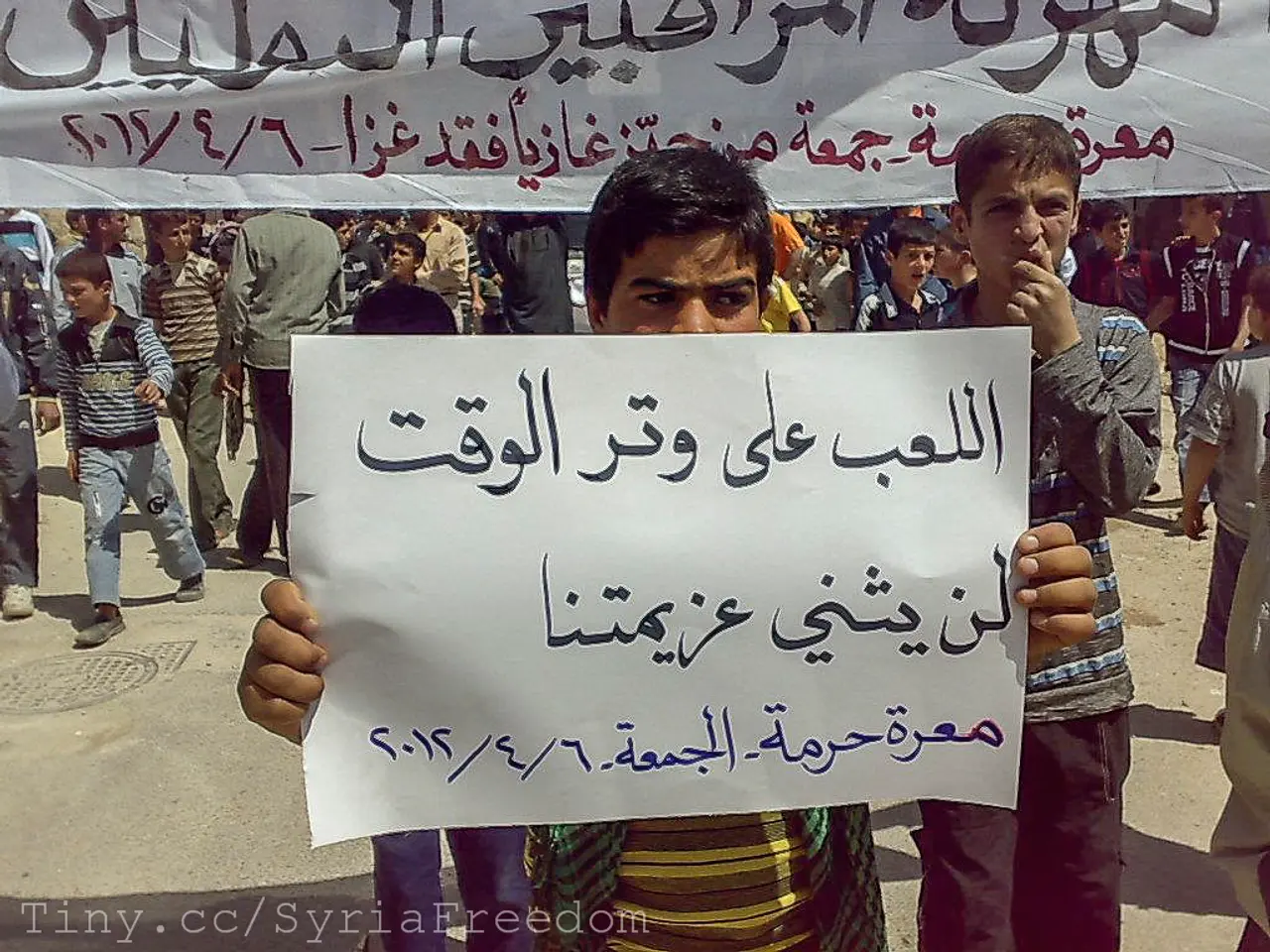Evaluation Findings: Decline in Assaults Against Refugees - Assessment Finds Few Instances of Attacks Against Refugees
In Germany, the number of politically motivated crimes against refugees has seen a significant decrease, according to a recent evaluation by the Federal Office for the Protection of the Constitution [1]. This reduction can be attributed to a substantial drop in new asylum applications and the implementation of stricter migration policies.
Clara Bünger, interior policy spokeswoman for the Left Party, attributes this policy shift to a problematic approach that declares refugees as the issue, rather than addressing underlying problems such as housing shortages, poverty, over-indebted municipalities, and crumbling infrastructure [2].
The evaluation, created at the request of the Left Party and available to the German Press Agency, reveals that in the first half of 2025, there were 648 documented crimes against asylum seekers and refugees outside of refugee accommodations. The majority of these incidents were cases of property damage, insults, and incitement [3]. This is a decrease compared to the same period in 2024, when the police recorded 1,236 such crimes nationwide [4].
However, the decrease in crimes does not mean that the situation is improving significantly. Clara Bünger believes that this decrease is no reason to let down our guard [5]. She emphasizes that racial insults, threats, and physical attacks are still part of the daily life of people seeking protection in Germany.
The decrease in new asylum applications has led to fewer refugees needing protection, which may indirectly reduce the number of crimes committed involving refugees. However, the political debate in Germany is complex, with public perception and several high-profile violent incidents contributing to feelings of insecurity among the population [2].
The rise of right-wing parties like the AfD has been tied to concerns over crime and immigration policy since 2015, reflecting a polarized political climate [6]. The AfD is currently being monitored by the Federal Office for the Protection of the Constitution as a suspected far-right case [7].
The federal government, as the governing body of Germany, is responsible for making decisions regarding immigration and asylum policies. The Federal Office for Migration and Refugees (Bamf) is the agency responsible for handling asylum applications in Germany [8].
The police have been monitoring several demonstrations nationwide in connection with the topic of immigration or asylum, which were carried out or dominated by right-wing extremists [9]. For instance, the small party Free Saxony mobilized around 430 and approximately 350 protesters in Heidenau and Johanngeorgenstadt, respectively, in these demonstrations [10].
Despite the decrease in crimes, human rights organizations criticize the tougher measures, including the legality of pushbacks at borders and deportations to unsafe countries like Afghanistan [3][5]. The European Court of Justice has also issued rulings that challenge some national restrictive asylum practices, creating legal tension with Germany’s tougher stance [1].
In summary, the decrease in crimes involving refugees partly results from a steep decline in asylum-seeking arrivals due to stricter German migration policies. However, the political debates remain intense, balancing policy effectiveness, legal constraints, human rights concerns, and public sentiment about safety and integration.
The Community and Employment policies of Germany, being key areas of political discourse, are deeply intertwined with the issue of immigration and asylum, as indicated by Clara Bünger, the interior policy spokeswoman for the Left Party [2]. This complex political landscape in Germany, characterized by the rise of right-wing parties like the AfD and concerns over crime and immigration policy, has contributed to a polarized public perception that influences the general-news and crime-and-justice discussions [6]. Despite a decrease in politically motivated crimes against refugees, as seen in a recent evaluation by the Federal Office for the Protection of the Constitution [1], there is ongoing criticism from human rights organizations about the legality of pushbacks at borders and deportations to unsafe countries [3][5].








